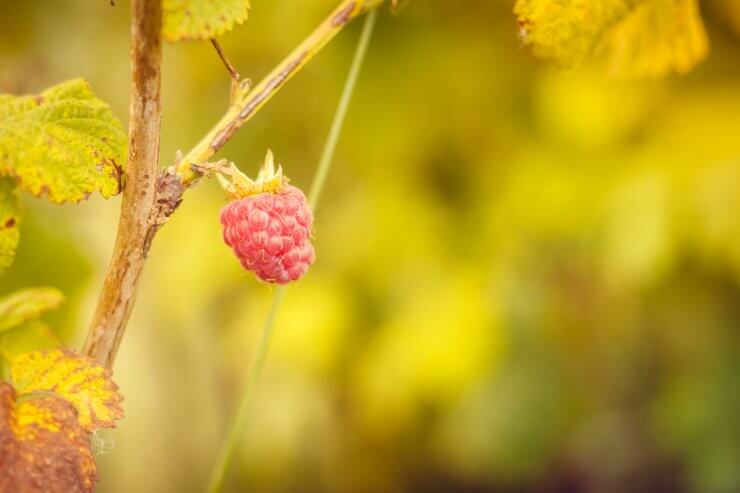
Signs of root rot: yellowing leaves, sparse berries, damaged cane
Phytophthora root rot in raspberries is caused by a species of fungi of the genus phytophthora. It is a common problem associated with growing raspberries, especially in areas with poor soil drainage. Infected plants become weak and stunted and eventually collapse and die.
What does root rot look like?
The affected raspberry plant will look sparse and weak. Apparently healthy canes will suddenly decline and collapse; leaves will turn yellow or orange.
What causes root rot in raspberries?
Typically, raspberry plants suffer from root rot because the fungi were already existing in the planting spot, or because of a lack of proper drainage.
How can you control and treat root rot?
There is no cure for this disease, but you can minimize risk by taking some or all of the following steps:
- Choose tissue culture plants (potted) that come directly from the laboratory or greenhouse and have not been grown out in nursery fields before sale.
- Select a planting site with adequate drainage, amend the soil to provide drainage, or plant in raised beds. Then be careful not to overwater your raspberry plants.
- Choose resistant varieties. Many raspberry cultivars have been engineered to resist root rot to varying degrees.
- Apply fungicide. Phytophthora root rot of raspberry can be partially controlled with the soil-applied fungicide Ridomil Gold.
Do your raspberry plants suffer root rot? Do you have any great tips about how to avoid raspberry root rot? Please tell us how you deal with root rot in your garden.


 Previous
Previous

